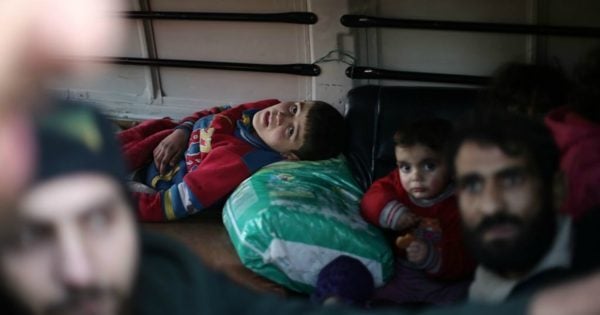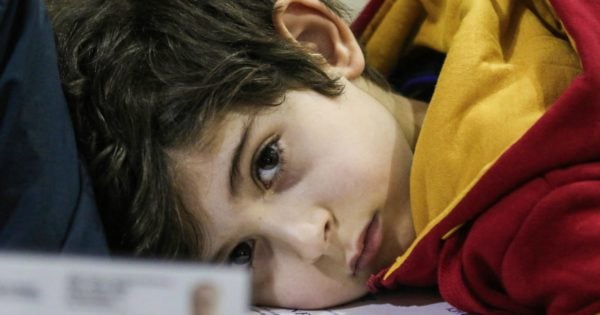More than 14,000 kilometres away, there are children enduring a kind of suffering we could not even begin to imagine.
There are more than five million Syrian children who are either refugees or have been displaced within their own country.
They have lost their homes.
Their neighbourhoods have been forever destroyed.
They have lost their pets.
Their families have disappeared, or been murdered right in front of them.
They have been victims of torture, or witnessed people they love be tortured.
The CEO and Founder of the Asylum Seeker Resource Centre, Kon Karapanagiotidis is an Australian to be proud of. Listen to our interview on Fighting For Fair. Post continues below.
They have looked on as massacres have been carried out before their eyes.
They have been targeted by snipers.
They have grown accustomed to air raids that punctuate their everyday life.
They have suffered such severe physical injuries that many are missing limbs or live with devastating disabilities.
There is no longer such a thing as ‘hope’.
In December of last year, a viral video out of Aleppo featured children so deeply traumatised that they had stopped crying. A little boy’s family had been murdered, and not a single tear rolled down his bloodied cheek.
“Aleppo is a place where the children have stopped crying.” Scenes of sheer terror and grief in the last hospital in the last days of Aleppo pic.twitter.com/sy1NgjD4gY
— Channel 4 News (@Channel4News) 16 December 2016































































































